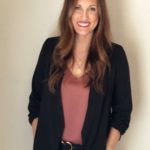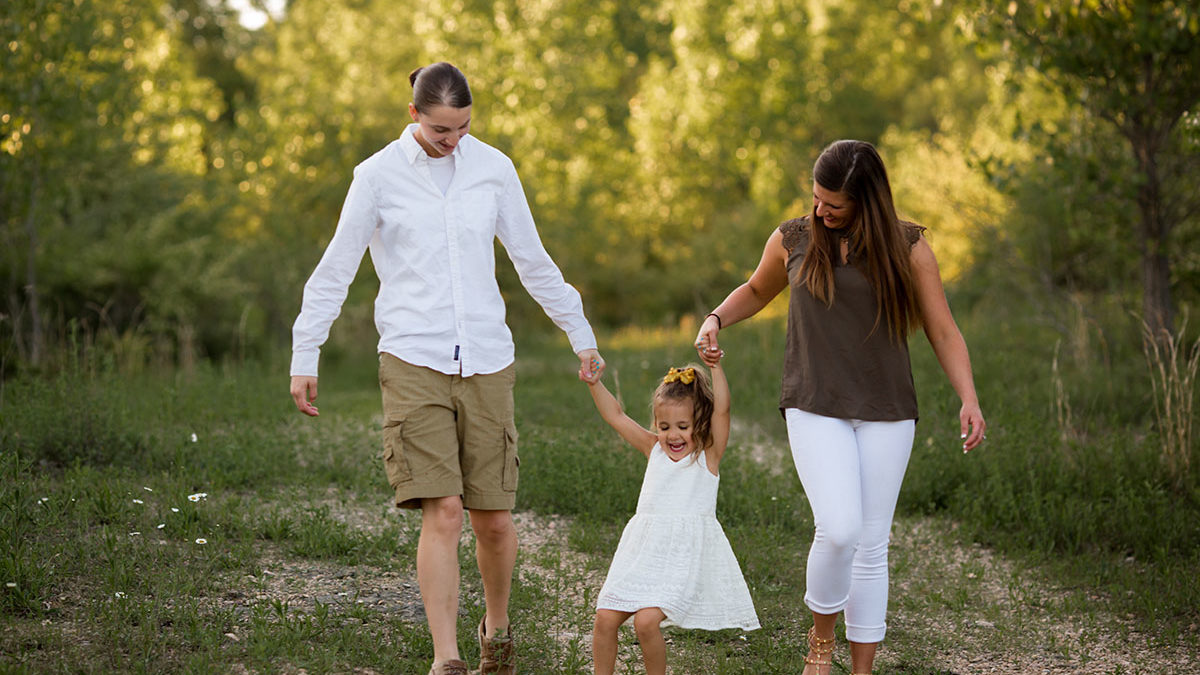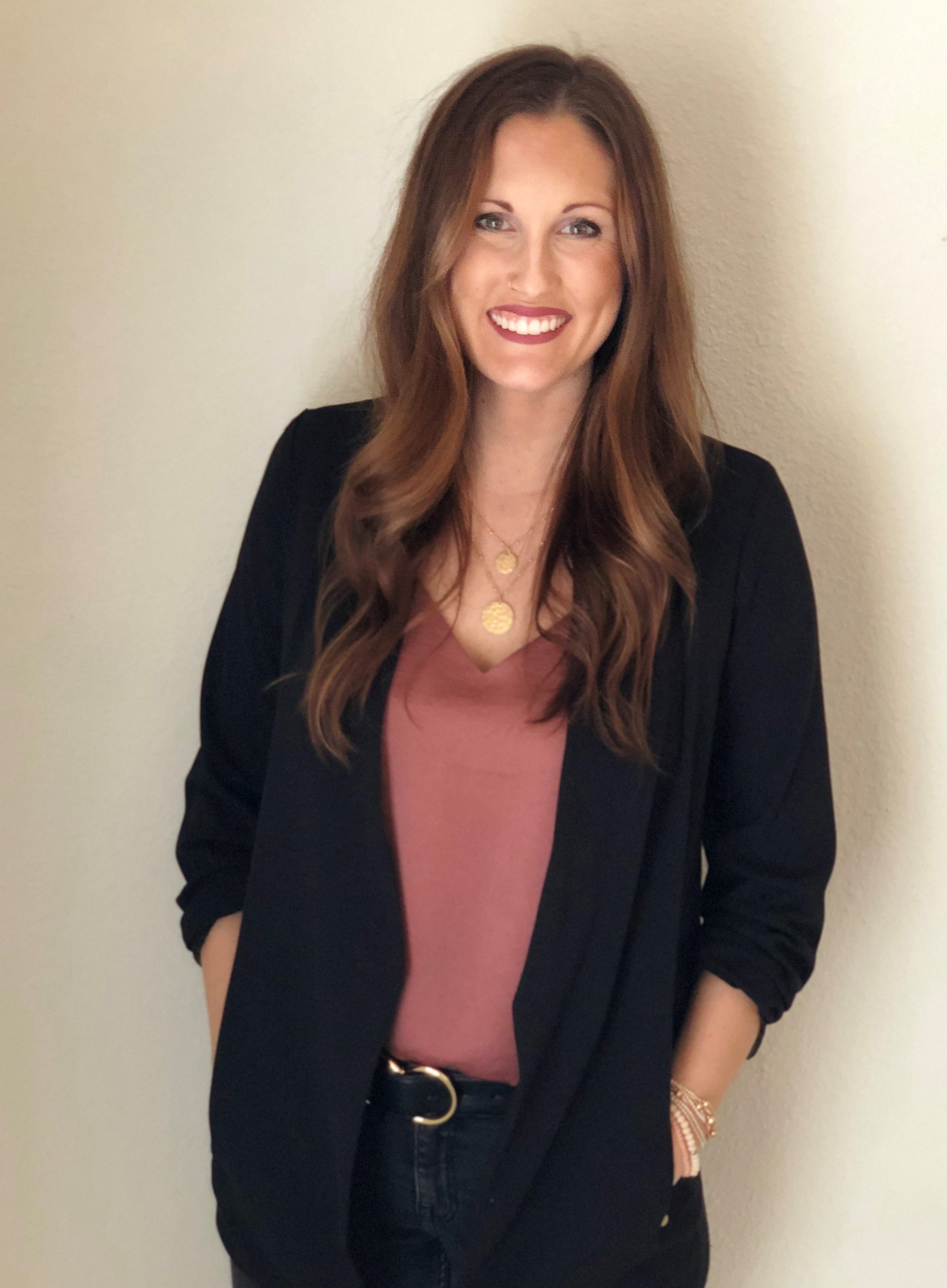You see it more every day: LGBTQ+ couples around the globe are becoming parents at a higher rate than ever before. It’s such an exciting and beautiful thing to see our world slowly accepting that families can be defined in a number of ways. As with any social change, there comes a need for increased inclusion and language consideration.
I got married to my wife just ten months ago, and we are asked about whether we intend to expand our family incredibly often—by family, by coworkers and even by strangers. Luckily, we do want to expand our family eventually, so this question doesn’t upset us. But I always find it to be a very personal question to ask someone who is not a close friend or relative. Family expansion, whether you are an LGBTQ+ couple or not, can be an incredibly sensitive subject.
Society still assumes that all women want to be mothers or that LGBTQ+ men don’t have paternal desires. Tyler from Chicago, Illinois, says he absolutely wants children. Although he is not at all offended by the question about whether or not he wants children, it’s unfair to make assumptions that just because he’s not a woman that he doesn’t want to have a child someday. Some people may not have the desire while others may want to be parents but are having trouble conceiving or adopting, and it’s about time we are more gentle with this idea.
For LGBTQ+ couples, parenthood may be what’s in the couple’s heart, but they might not be able to afford the thousands of dollars that it takes to expand their family through fertility assistance or adoption. We need to bear these possibilities in mind and be considerate of how we talk about parenthood and family expansion.
Ask in a thoughtful, open-ended way.
Whitney, 32, married her wife a few months prior, and one of her coworkers asked, “So, what is next for you two?” This allows a couple to share their plans for expanding their family if they so choose, or share their plans of traveling the world and adopting two new dogs if that is their path. Wording the question this way truly invites couples to share freely without feeling triggered or judged by whoever is asking.
Don’t let the burden fall to the couple to correct you if you misgender them or make gendered assumptions.
Lindsey, 29, and Ashley, 32, of Texas have been married for three years and are attempting to get pregnant through IUI, or intrauterine insemination. With this method, the couple selects a sperm donor, and their fertility doctor places that sperm directly into the uterus in hopes of creating a successful pregnancy. They began this process at one fertility clinic and were forced to change to another clinic when their nurse continued to address them as husband and wife.
Even with a number of corrections, reminding the nurse that they are a same-gender couple, she still continued with the mistake. This type of blatant disregard for a couple has the ability to ruin what is meant to be such a joyous process. It’s one thing to make this mistake once if no one has prompted you with the information, but to continuously need to be corrected is another story. Lindsey and Ashley are now working with a clinic that is intentionally LGBTQ-inclusive, and they feel wildly more comfortable knowing they are working with doctors and nurses that are embracing them as a same-gender married couple.
Be considerate of how you refer to sperm donors and the conception process.
Donor sperm is an important piece of the puzzle in helping couples to conceive. Many queer couples say that when someone is asking or talking about their donor, it’s important to avoid the use of the word “father” in reference to sperm donors and “mother” in reference to egg donors. There are certainly exceptions to this rule; there are plenty of LGBTQ+ couples that have conceived children with the help of their friends’ donations, and they may choose to co-parent together. But for those LGBTQ+ couples that have purchased an anonymous donor’s sperm or egg, this donor is not usually a mom or dad to this child. They likely will never meet the child conceived with their donation, and if they do, it may not be for 18 or more years.
Asking an LGBTQ+ couple about the donor “father” or “mother” would be like asking a straight couple who the parents are to their adopted child. A family, and more specifically parenthood, is not defined by DNA. The people who spend day in and day out raising and loving a child are the parents. When my wife and I expand our family, our children will have two moms and a household full of hope and love, made possible by a donor’s sperm. It’s important that more people are aware of this, as to not ostracize queer couples by blatantly reminding them that a portion of society has a hard time accepting a household with only one gender of the parents.
Cassie and Kayla, both 32 of Dallas, Texas, brought their son into the world three months ago. They’re commonly asked, “Which of you is the mother?” They conceived through IVF; the process in which one of them was inseminated with an embryo that led to their successful pregnancy.
People are trying to ask which of them gave birth to their child. But by wording it this way, they are suggesting that only one of these women can be the mother. This is incredibly hard for the mom who did not give birth to the child, as they are both a mother to their baby. There doesn’t have to be just one mother. The mother who didn’t give birth to their child shared with me that she sometimes wonders if not being the birth-mom disqualifies her from being their baby’s parent. This question makes her feel like maybe that spot is only reserved for the mom who housed the pregnancy.
A more inclusive way of asking this question could be, “Which of you carried the pregnancy?” This way, the mother who did not carry the child is not excluded from her role as the parent.
Don’t place gendered expectations on the couple or their children.
Randi, 35, and Kendall, 36, of Texas shared with me their experience of being LGBTQ+ mothers to their son. Their more conservative friends and family sometimes make comments about their child needing a strong male influence in his life, and that it would be beneficial that one of their fathers lives close by to help raise him.
This is such a disrespectful thing to suggest to two new parents. This blatantly points out society’s obsession with gender and the roles that are to be assumed. This completely discounts Randi and Kendall’s ability to raise their children well on their own. Two women raising a boy or two men raising a girl are just as capable as a household with two different gendered parents. Comments like these need to be thrown out altogether, as they do not promote inclusivity, but rather suggest an old-world way of thinking. In order to progress as a society and illustrate true equality, we must demand that people respect all families, no matter if they look different from their own.
All of the couples that I spoke with also had incredibly affirming experiences through their journey to becoming parents. From hospitals that were incredibly inclusive in how they referenced the non-biological parent to a nursing team that encouraged one of the non-birth moms to get in the hospital bed with the birth-mom immediately after the baby was born to friends and family who shared in their excitement and joy. It’s amazing to see how our society has opened their hearts and minds to LGBTQ+ families, and just as important to take opportunities to educate the world on inclusivity. Fertility assistance and the choice to adopt is not just reserved for LGBTQ+ couples. One in eight couples struggle with successful fertility and have to decide whether to find other ways to expand their family.
We all need to bear this in mind and remember that no matter how a family is created, all families are valid. I love Whitney and Sarah’s point of view in regards to their conception—they remind themselves that science is a beautiful thing and a queer couple’s journey to parenthood is an extraordinary story to tell. We are so lucky to live in a world with advanced science aiding in the creation of families every single day. All we can do is hope that by sharing a look into our humanity, more people will stop to consider if their language is inclusive and be the change that we all wish to see.
Header photo by Margo Salmons Photography from Sunset family portraits by the lake.
 Kaila Strickland lives in Dallas, Texas, with her wife, Laine, and their two dogs. She works in the wine industry by day and has a passion for writing and fitness. In her free time, she enjoys working on her blog, taking group fitness classes and traveling with her spouse. She is a firm believer in all things equality and believes wholeheartedly that love always wins. You can find more writing content from her at The Comfy Closet.
Kaila Strickland lives in Dallas, Texas, with her wife, Laine, and their two dogs. She works in the wine industry by day and has a passion for writing and fitness. In her free time, she enjoys working on her blog, taking group fitness classes and traveling with her spouse. She is a firm believer in all things equality and believes wholeheartedly that love always wins. You can find more writing content from her at The Comfy Closet.

































